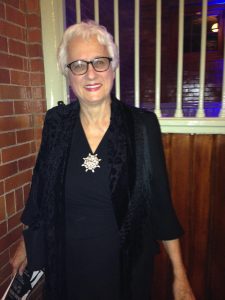“You shoulda been a boy.” That was my dad’s ultimate compliment when, at age 22, I came home after living in Athens, Greece for six months. An adventurer in his own youth, he had encouraged me to join the Navy after high school graduation (1956), as he had done in 1917, followed by a stint in the 1920s as a Montana cowboy. My only other choice, he said, was “Katie Gibbs.”

With that escapade over and airline ticket in hand, I had my first true feminist moment when, arriving in London with nothing but my plane ticket home and no place to stay until my scheduled departure, I approached the American embassy. The brawny Marine guard at the door invited me to stay with him. As broke, exhausted and innocent as I was, I knew enough to say no thanks, and walked away.
In 1966, having followed a boyfriend to San Francisco, I scored a laboratory research job and got pregnant. It would be eight years before Roe v. Wade became the law of the land. The term “single mom,” with its whiff of choice, dignity, admiration, and social support, was still on the horizon. Back then, I was a shamed “unwed mother.” My lucky return to my then-widowed mother’s open arms back in New Jersey allowed me to find paying work, using the fake title “Mrs.”
By the early 1970s, having risen from typist (the typical job for women) to medical editor, I became the first woman appointed to an “exempt” job in a drug company marketing department, writing training programs for salespeople. My shock and confusion when the boss told me that off-site company gatherings were “just for us guys” marked the start of a long feminist awakening. As feminism gained steam in the wider society, my self-concept was radically altered. My work was no longer “something to fall back on,” but a central part of my identity.
When I married in 1974 I refused to change my surname, asking surprised male friends to imagine changing their own surname at age 35. In 1977, the sole support of my family, and visibly pregnant with my second child, I walked into a bank, applied for, and was granted my first car loan. Later that decade, I became one of the first women to get a mortgage in my own name. The empowerment of those experiences fueled a commitment to feminism that endures today.
The era of women’s economic and social inferiority is almost over. I hope I am still around when its demise is complete. When my granddaughter, now age 2, expects to meet no resistance, from her father or anyone else, to her plan to operate bulldozers when she grows up; or her 5-year-old brother confidently declares, with no fear or shame, that he wants to become a homemaker (or vice versa), we will have arrived. That level of social acceptance of gender equality will make passage of the Equal Rights Amendment to the Constitution, and laws punishing violators, a slam dunk. We will be free of gender-based expectations. Gender Studies will take their place in the history books. The next wave of feminism will be the last one we will ever need. – Faith Frankel frankel.f@gmail.com
References
- Katherine Gibbs School https://en.wikipedia.org/wiki/Gibbs_College
- New Jersey College for Women, New Brunswick. Renamed Douglass College in 1955. Absorbed into Rutgers University in 2007 and renamed Douglass Residential College. https://www.nj.com/inside-jersey/2018/02/the_100-year_journey_of_douglass_college.html
- 1962. Sailed to LeHavre (port of Paris) on Cunard’s Queen Elizabeth, rode the Orient Express to Athens, lived with a boyfriend in a house atop Mt. Lykabettos overlooking the Parthenon, learned some Greek. It’s another whole story.
- At the time, potential employers could ask women their marital status and number of children or plans to have children.
- Salaried position, with expectation to work as many hours as required to get the job done.
- Before 1974, credit was rarely granted to individual women without a husband co-signing for the loan. https://blog.myfico.com/women-credit-history/
